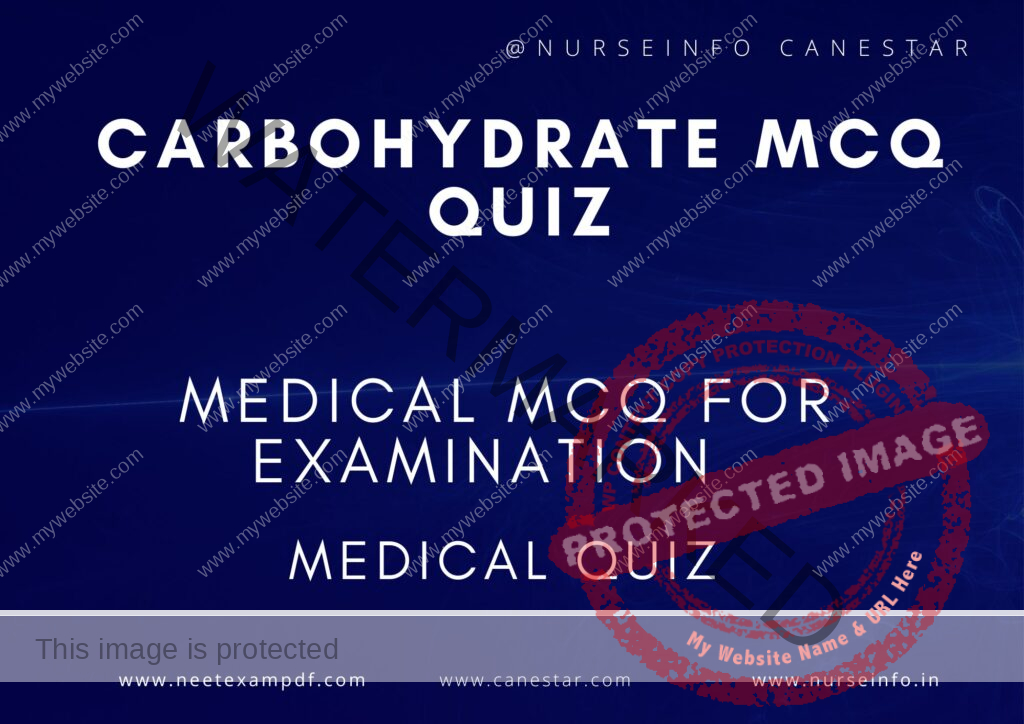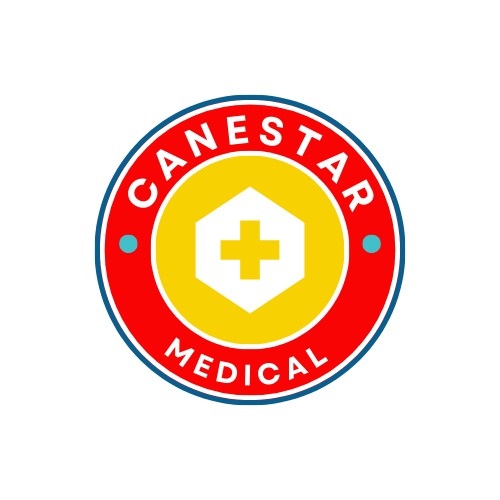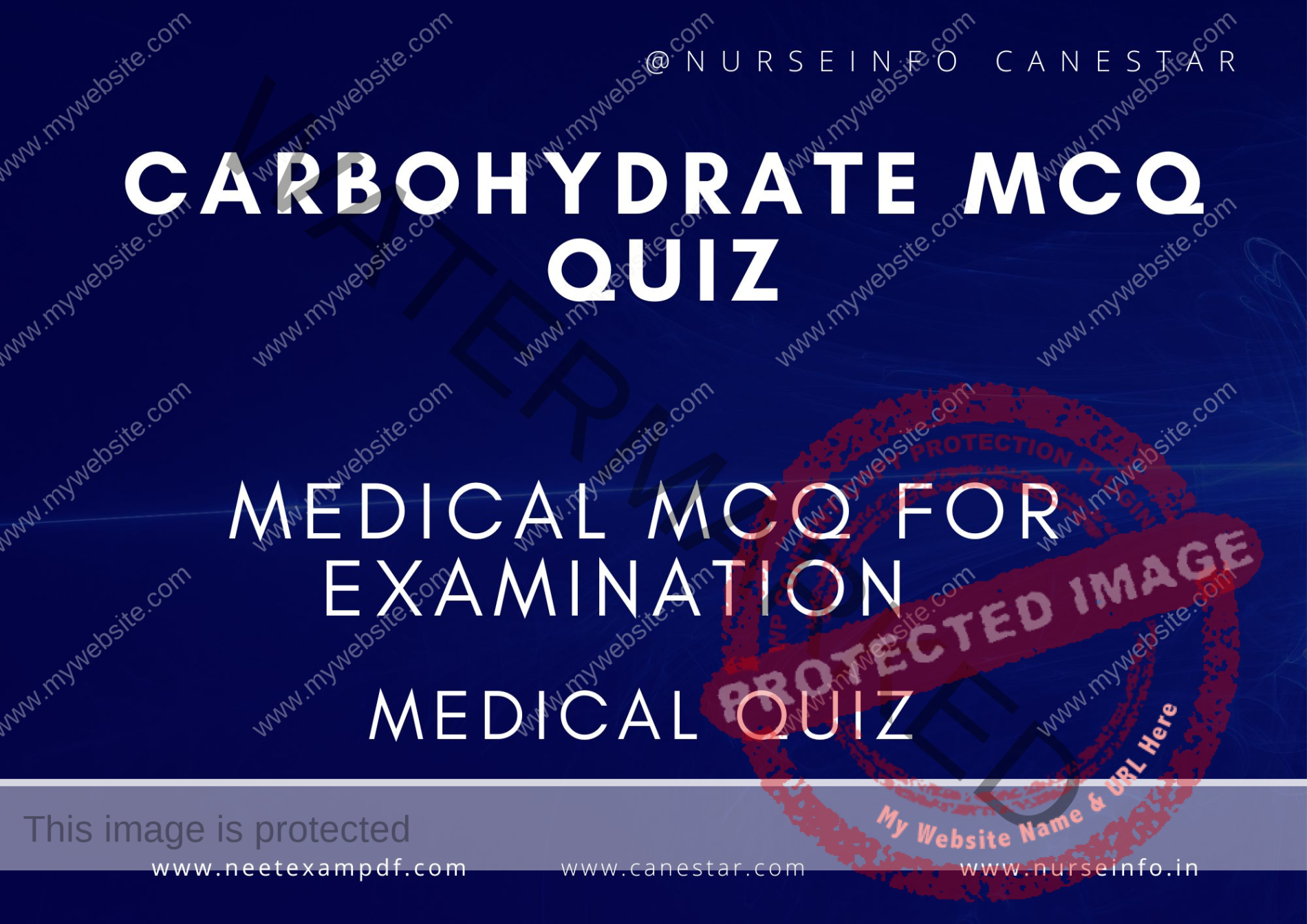MULTIPLE CHOICE QUESTIONS ON CARBOHYDRATES PRACTICE QUIZ – MCQS WITH RATIONALE ANSWER – CARBOHYDRATES MCQ QUESTIONS WITH RATIONALE
MCQ FOR CARBOHYDRATES QUIZ
These mcqs are prepared exclusively for medical professionals for exam preparation. MCQ is helpful to remember the concept on carbohydrates mcq quiz. This multiple choice questions are helpful for preparation for DHA, PROMETRIC, MOH, HAAD, NCLEX, Medical, NEET and Nursing EXAMINATION
CARBOHYDRATES MCQ QUIZ
Carbohydrate MCQs with Rationale Answers
Question 1:
Which of the following is a simple sugar?
A) Starch
B) Cellulose
C) Glucose
D) Glycogen
Answer: C) Glucose
Rationale: Glucose is a monosaccharide, which is the simplest form of carbohydrate. Starch and glycogen are polysaccharides, and cellulose is a complex carbohydrate.
Question 2:
What is the primary function of carbohydrates in the body?
A) Structural support
B) Genetic information storage
C) Energy production
D) Hormone synthesis
Answer: C) Energy production
Rationale: Carbohydrates are the body’s main source of energy. They are broken down into glucose, which is used to produce ATP through cellular respiration.
Question 3:
Which carbohydrate is known as “animal starch”?
A) Cellulose
B) Glycogen
C) Fructose
D) Sucrose
Answer: B) Glycogen
Rationale: Glycogen is often referred to as “animal starch” because it is the storage form of glucose in animals, similar to starch in plants.
Question 4:
What type of carbohydrate is fiber?
A) Monosaccharide
B) Disaccharide
C) Oligosaccharide
D) Polysaccharide
Answer: D) Polysaccharide
Rationale: Fiber is a type of polysaccharide that the human body cannot digest. It aids in digestion by adding bulk to the stool.
Question 5:
Which enzyme breaks down starch into maltose?
A) Amylase
B) Lactase
C) Sucrase
D) Maltase
Answer: A) Amylase
Rationale: Amylase is the enzyme that catalyzes the hydrolysis of starch into maltose and dextrin.
Question 6:
Which of the following is a disaccharide?
A) Glucose
B) Fructose
C) Lactose
D) Cellulose
Answer: C) Lactose
Rationale: Lactose is a disaccharide composed of one molecule of glucose and one molecule of galactose.
Question 7:
What is the storage form of carbohydrates in plants?
A) Glycogen
B) Starch
C) Cellulose
D) Glucose
Answer: B) Starch
Rationale: Starch is the storage form of carbohydrates in plants. It consists of amylose and amylopectin.
Question 8:
Which of the following sugars is found in milk?
A) Sucrose
B) Glucose
C) Lactose
D) Fructose
Answer: C) Lactose
Rationale: Lactose, commonly known as milk sugar, is found in milk and dairy products.
Question 9:
Which process converts glucose into pyruvate?
A) Glycogenesis
B) Glycolysis
C) Gluconeogenesis
D) Glycogenolysis
Answer: B) Glycolysis
Rationale: Glycolysis is the metabolic pathway that converts glucose into pyruvate, releasing energy and producing ATP.
Question 10:
What type of bond joins monosaccharides together to form disaccharides and polysaccharides?
A) Hydrogen bond
B) Ionic bond
C) Peptide bond
D) Glycosidic bond
Answer: D) Glycosidic bond
Rationale: Glycosidic bonds are covalent bonds that link monosaccharides together to form disaccharides and polysaccharides.
Question 11:
What is the primary source of carbohydrates in the human diet?
A) Meat
B) Fruits and vegetables
C) Dairy products
D) Nuts and seeds
Answer: B) Fruits and vegetables
Rationale: Fruits and vegetables are primary sources of carbohydrates, providing essential nutrients and fiber.
Question 12:
Which carbohydrate is known as table sugar?
A) Glucose
B) Fructose
C) Sucrose
D) Maltose
Answer: C) Sucrose
Rationale: Sucrose, commonly known as table sugar, is a disaccharide composed of glucose and fructose.
Question 13:
Which of the following is a polysaccharide found in the cell walls of plants?
A) Starch
B) Glycogen
C) Cellulose
D) Chitin
Answer: C) Cellulose
Rationale: Cellulose is a polysaccharide that provides structural support to the cell walls of plants.
Question 14:
What is the end product of glycolysis?
A) Glucose
B) Pyruvate
C) ATP
D) Lactate
Answer: B) Pyruvate
Rationale: The end product of glycolysis is pyruvate, which can then enter the Krebs cycle for further energy production.
Question 15:
Which hormone regulates blood sugar levels by promoting the uptake of glucose into cells?
A) Glucagon
B) Insulin
C) Epinephrine
D) Cortisol
Answer: B) Insulin
Rationale: Insulin is a hormone that lowers blood glucose levels by facilitating the uptake of glucose into cells.
Question 16:
What is the process of forming glucose from non-carbohydrate sources called?
A) Glycolysis
B) Glycogenesis
C) Gluconeogenesis
D) Glycogenolysis
Answer: C) Gluconeogenesis
Rationale: Gluconeogenesis is the metabolic process that produces glucose from non-carbohydrate substrates like amino acids and glycerol.
Question 17:
Which of the following is a common symptom of carbohydrate deficiency?
A) Weight gain
B) Hyperactivity
C) Ketosis
D) High blood pressure
Answer: C) Ketosis
Rationale: Ketosis occurs when the body breaks down fats for energy due to insufficient carbohydrate intake, leading to the production of ketones.
Question 18:
Which of the following is not a dietary source of carbohydrates?
A) Bread
B) Rice
C) Fish
D) Pasta
Answer: C) Fish
Rationale: Fish is a source of protein and fats, not carbohydrates. Bread, rice, and pasta are rich in carbohydrates.
Question 19:
What is the recommended daily intake of carbohydrates for an average adult?
A) 50-100 grams
B) 130 grams
C) 200-300 grams
D) 400-500 grams
Answer: B) 130 grams
Rationale: The Recommended Dietary Allowance (RDA) for carbohydrates for adults is 130 grams per day to provide adequate glucose for brain function.
Question 20:
Which of the following sugars is a component of RNA?
A) Deoxyribose
B) Ribose
C) Glucose
D) Fructose
Answer: B) Ribose
Rationale: Ribose is a five-carbon sugar that is a component of RNA, distinguishing it from deoxyribose found in DNA.


